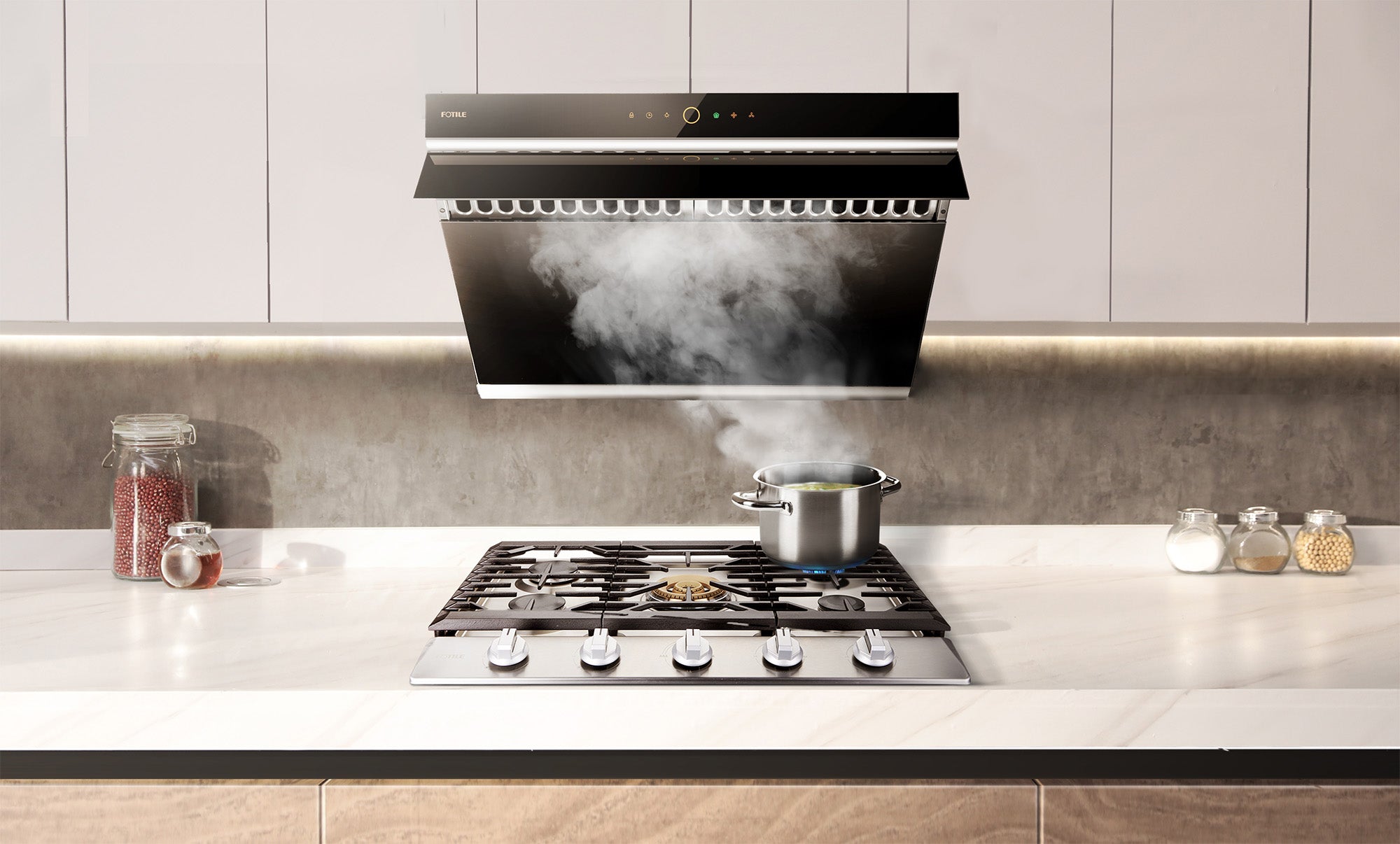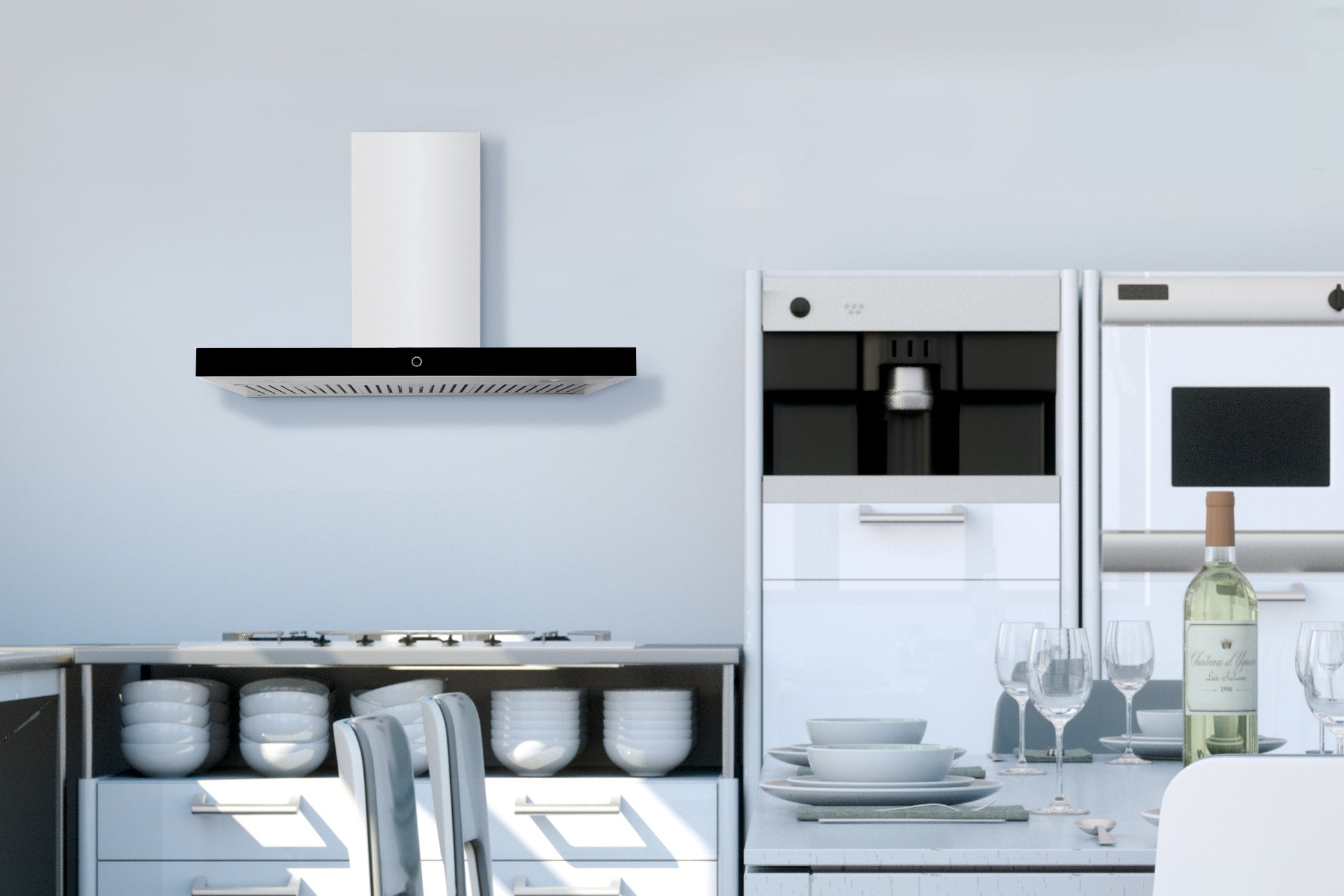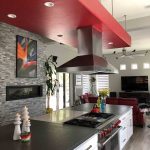Introduction
When it comes to choosing between a ducted and ductless range hood for your kitchen, several factors come into play, including your kitchen layout, ventilation needs, cooking habits, and budget. Let’s delve into the details of each type to help you determine which one is the best fit for your culinary space.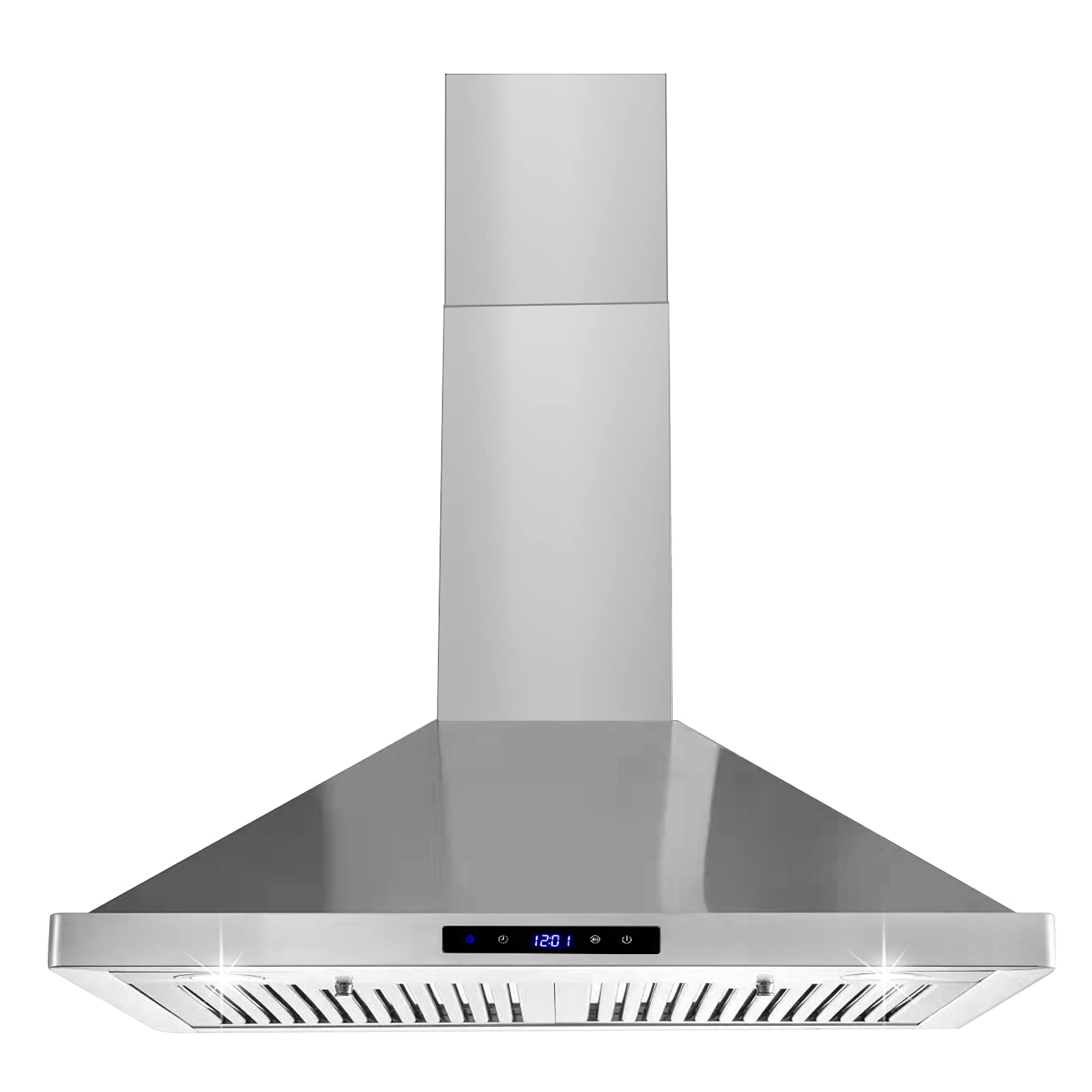
Ducted Range Hood:
1. Superior Ventilation:
Ducted range hoods, also known as vented or exhaust hoods, offer superior ventilation compared to their ductless counterparts. They draw in cooking odors, smoke, grease, and airborne particles, then expel them outside through a duct system. This ensures that pollutants are effectively removed from your kitchen, resulting in cleaner air and a more pleasant cooking environment.
2. Efficient Grease Removal:
Ducted range hoods are highly effective at capturing grease and preventing it from settling on kitchen surfaces. By venting grease-laden air outdoors, they help reduce the buildup of grease on walls, cabinets, and countertops, minimizing the need for frequent cleaning and maintenance.
3. Quieter Operation:
Since ducted range hoods exhaust air outside, they tend to operate more quietly than ductless models. This can be advantageous if you prefer a quieter cooking experience or have an open-concept kitchen where noise levels may be more noticeable.
4. Professional-Grade Performance:
If you frequently cook with high heat or produce a lot of smoke and steam, a ducted range hood is the preferred choice. Its robust ventilation capabilities make it suitable for handling the demands of professional-grade cooking appliances, ensuring that your kitchen remains clean and odor-free even during intensive cooking sessions.
Ductless Range Hood:
1. Flexibility in Installation:
Ductless range hoods, also known as recirculating hoods, offer greater flexibility in terms of installation since they do not require a duct to vent air outside. This makes them an ideal option for kitchens where installing a duct system may be impractical or cost-prohibitive.
2. Easy Retrofitting:
If you’re renovating an existing kitchen or adding a range hood to a space without existing ductwork, a ductless range hood may be the more convenient choice. Its simple installation process eliminates the need for extensive modifications to your kitchen layout, saving you time and money.
3. Cost-Effective Solution:
Ductless range hoods are typically more affordable upfront compared to ducted models since they don’t require ductwork installation. Additionally, they tend to have lower operating costs since they don’t expel heated or cooled air from your home, resulting in potential energy savings over time.
4. Recirculation of Air:
Instead of venting air outside, ductless range hoods recirculate it through a series of filters to remove impurities before recirculating it back into the kitchen. While they may not offer the same level of ventilation as ducted models, they can still help improve indoor air quality by trapping grease, smoke, and odors.
Choosing the Right Option for Your Kitchen:
Ultimately, the decision between a ducted and ductless range hood depends on your specific needs and preferences. If ventilation performance and odor control are top priorities, especially in a kitchen where heavy cooking is common, a ducted range hood may be the preferred choice. On the other hand, if installation flexibility, cost-effectiveness, and ease of retrofitting are key considerations, a ductless range hood may be more suitable.
Consider factors such as your cooking habits, kitchen layout, existing infrastructure, and budget when making your decision. Whichever option you choose, investing in a quality range hood will help keep your kitchen clean, comfortable, and free of cooking odors.
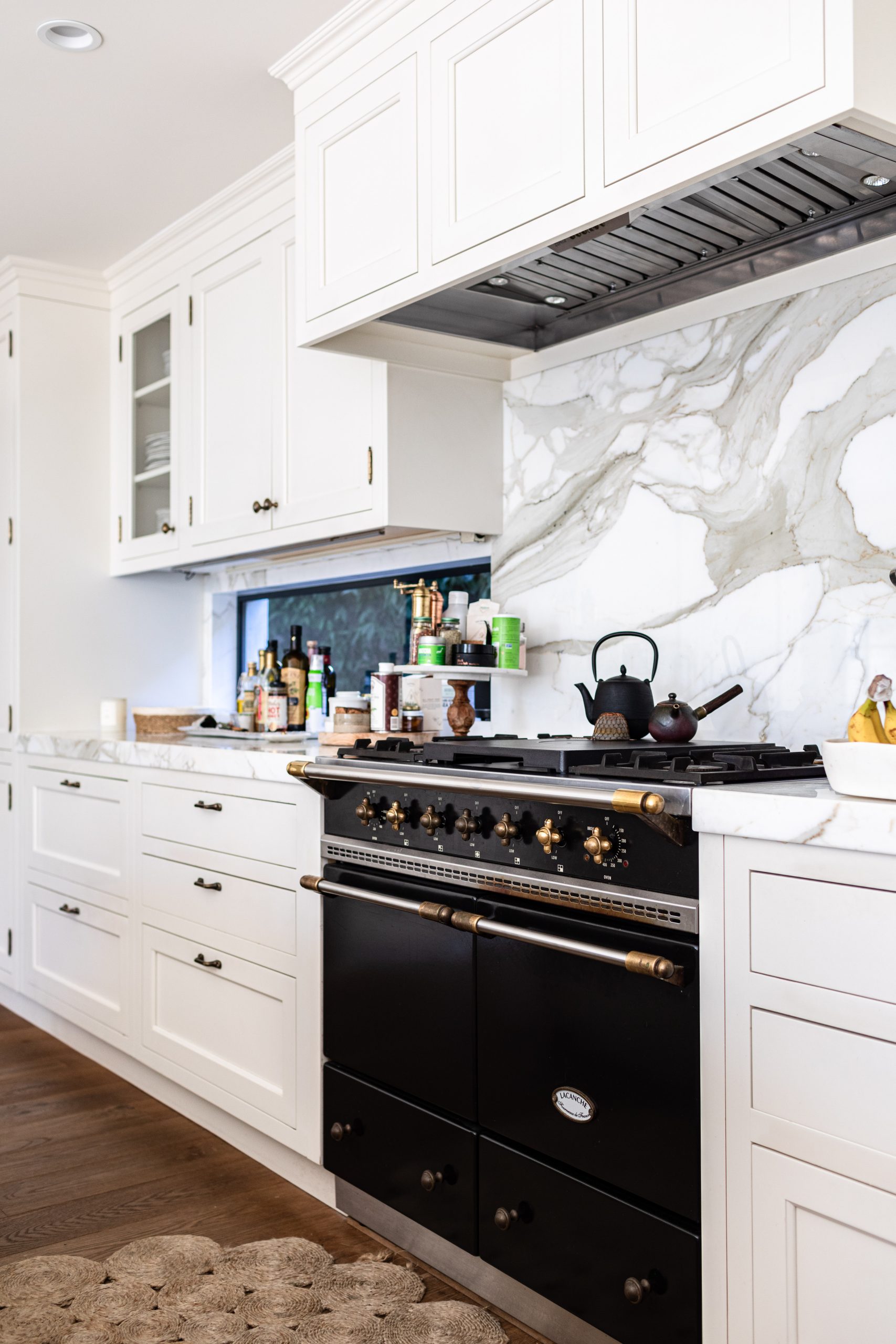
Ducted Range Hood:
5. Odor Control:
Ducted range hoods excel at removing cooking odors from your kitchen by venting them outdoors. This is particularly beneficial if you frequently cook aromatic dishes or use pungent ingredients, as it helps prevent lingering smells from permeating your home.
6. Enhanced Air Quality:
By expelling airborne contaminants outside, ducted range hoods contribute to improved indoor air quality. This is especially important for households with members who have respiratory issues or allergies, as it reduces exposure to pollutants and allergens generated during cooking.
7. Compatibility with Professional Appliances:
If you have a high-powered gas range or commercial-grade cooking equipment, a ducted range hood is essential for effectively removing the substantial amount of heat, smoke, and grease they produce. It ensures proper ventilation and prevents the buildup of grease residue in your kitchen.
Ductless Range Hood:
5. Carbon Filtration:
Ductless range hoods employ carbon or charcoal filters to capture grease, smoke, and odors before recirculating air back into the kitchen. While these filters are effective at removing impurities, they require periodic replacement or cleaning to maintain optimal performance.
6. Energy Efficiency:
Since ductless range hoods recirculate air rather than expelling it outside, they can be more energy-efficient, especially in climates where heating or cooling costs are significant. They help retain conditioned air within your home, reducing the workload on your HVAC system and potentially lowering utility bills.
7. Minimal Installation Requirements:
Unlike ducted range hoods, which necessitate access to an exterior wall or roof for ductwork installation, ductless models can be installed virtually anywhere in your kitchen. This makes them ideal for apartments, condominiums, and rental properties where modifying the building structure may not be feasible.
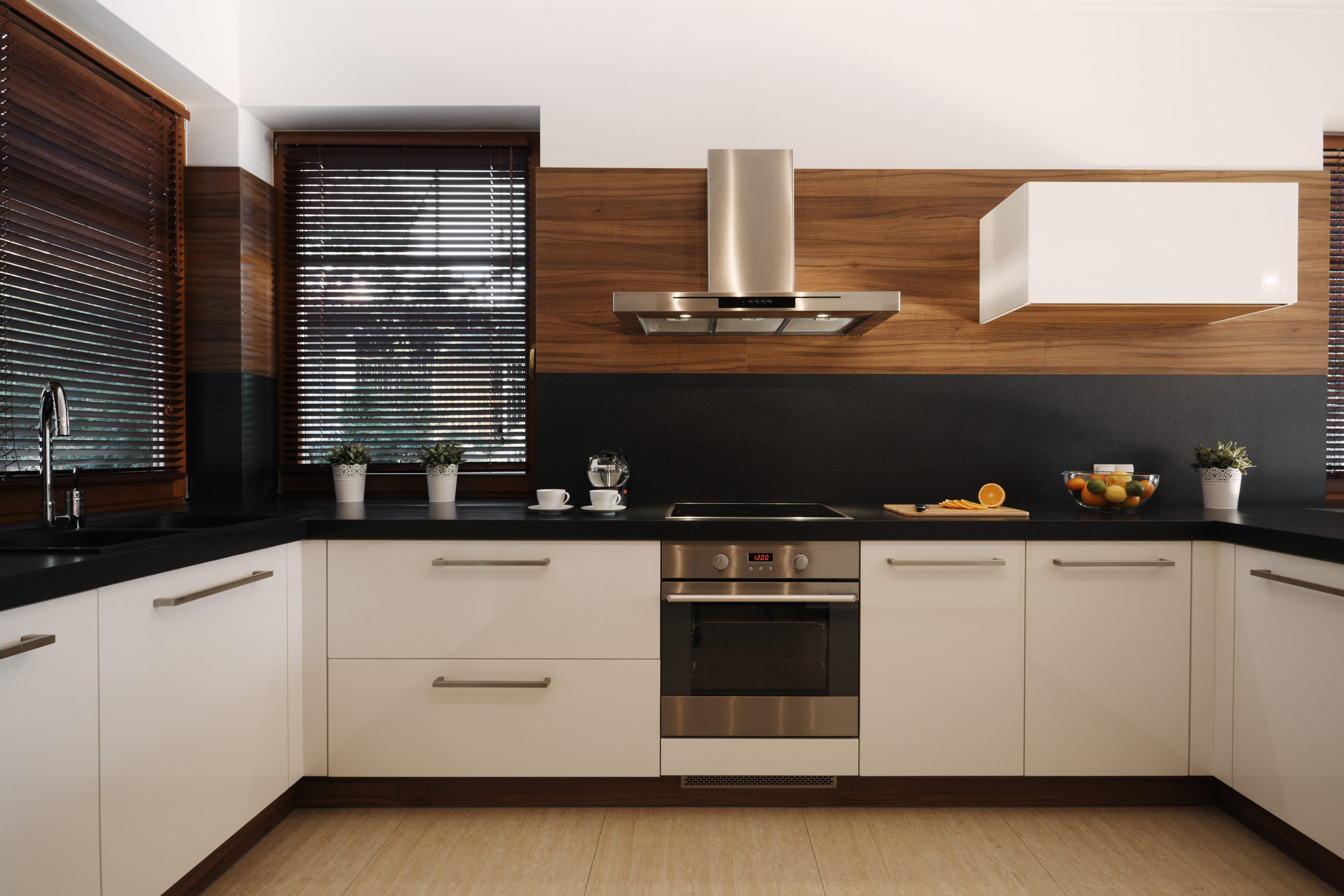
Additional Considerations:
8. Noise Level: While ducted range hoods tend to operate more quietly during normal use, ductless models may produce more noise due to the airflow being recirculated within the unit. However, advancements in technology have led to quieter operation in many modern ductless range hoods.
9. Maintenance Requirements:
Both ducted and ductless range hoods require regular maintenance to ensure optimal performance. Ducted models may require periodic cleaning of ductwork and grease traps, while ductless models necessitate filter replacement or cleaning to maintain efficient air purification.
10. Aesthetics:
Consider the visual impact of your range hood on your kitchen’s design aesthetic. Ducted range hoods require visible ductwork or vents on the exterior of your home, while ductless models feature a sleeker profile since they don’t require external ventilation.
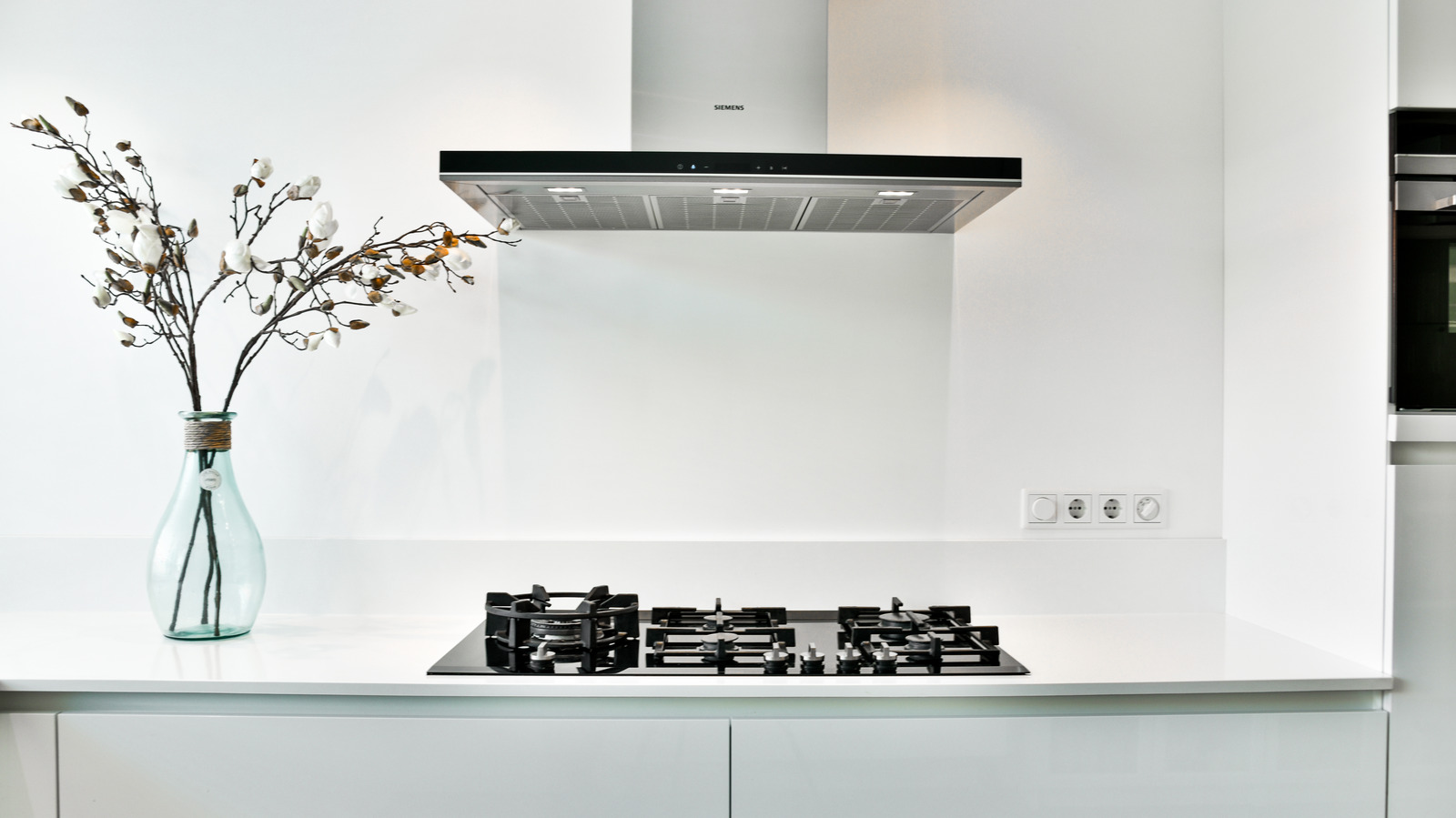
Conclusion
Choosing between a ducted and ductless range hood involves weighing various factors such as ventilation efficiency, installation flexibility, maintenance requirements, and operating costs. Evaluate your specific needs, kitchen layout, and budget constraints to determine which type of range hood best suits your requirements. Whether you opt for a ducted or ductless model, investing in a quality range hood is essential for maintaining a clean, comfortable, and odor-free kitchen environment.
